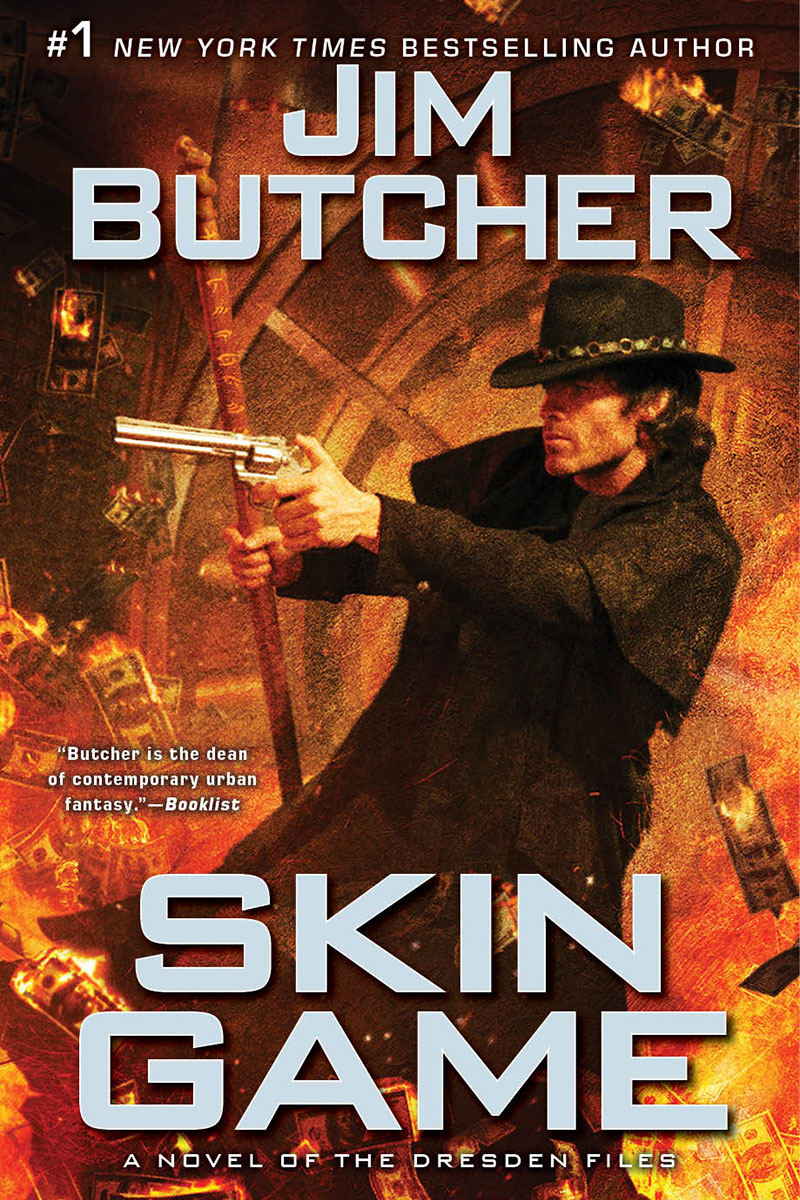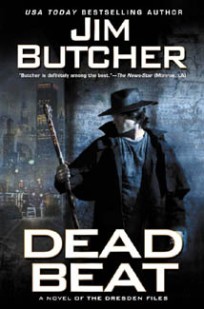It’s past high time for another followup entry. A while back, I explained the merits of a favourite long-running series of mine: Jim Butcher’s Dresden Files, the supernatural noir adventures of Harry Dresden, wizard and private investigator of Chicago.
And this summer, Butcher released yet another volume in Dresden’s exploits: Skin Game.

Harry had moved beyond private eye sleuthing, and taken up much, much higher levels of supernatural responsibility in recent books. He’s working on getting to grips with same, when his old nemesis, Mab, Queen of Winter, calls in a favour and tells him to collaborate on a heist – with Nicodemus, one of the series’ most deadly villains, leader of a cabal of fallen angels – on the vaults of a god. Harry has to risk both his friends and himself in
But Mab’s motives are typically mixed and Harry has allies of his own to protect, including his old friend Michael, Knight of the Cross, sworn to vanquish Nicodemus and his ilk.
The Dresden Files have been going a long time, and there’s an argument to be made that it’s jumped the shark. You see, the war with the vampires was the defining theme that ran through most of the series, although it often wasn’t the actual heart of any given book.
Now that war is over, so why are we still here? My abiding sense, taking the time to look back on the series at large, is that the sheer number of subplots seemed to get really out of hand.
The series has regularly hinted at something bigger than the obvious. There was a group, referred to as the Black Council, who had a Moriarty-like hand in much of the plot, and Nicodemus and his Order of the Blackened Denarius was involved, possibly without Nicodemus’ knowledge. And the Black Council may have been in league with the sinister Outsiders; Cthulian beings from beyond reality, which Harry may have a destiny to vanquish…
It may be that I’ve just forgotten more about the Dresden Files than I remember, but it seems as if there’s a lot that’s been cast aside.
Skin Game brings Nicodemus and the Denarians to centre stage in a way that suggests they’re now going to be the main villain, now that the vampires are not a big issue anymore. Harry’s temporary accord with one of the Denarians from Death Masks to White Night has also spawned a new subplot, and the ongoing need to recruit new Knights is still a key point.
But the thing is, this has been the case for quite a while now, in amongst all the other issues, and every time Nicodemus has shown up, he’s always been beaten but not defeated – that is, his plot is thwarted but he himself always gets away so he can come back for another round later, often having scored a partial victory. It’s an old device, but with the main trunk of the series tied off, to keep pulling this is trying my patience. The Black Council may or may not have been replaced with a mole in the Church’s supernatural department. In general, I get the general feeling that the whole series is being reset for a fresh start. Which is asking a lot considering we’re on book fifteen here.
Having said all that, the story of Skin Game itself is quite a lot of fun. I’ve always had a weakness for heists, and a supernatural one is all the better. Within the book, Butcher’s aptitude for mystery writing is demonstrated deftly enough, and his geeky and wry sense of humour, while not quite as pronounced as usual, was still a good giggle.
While the series is starting to feel awfull spun-out, I will say that the foreshadowing and new threads promise to be pretty cool, it’s just a pity they’re coming after so many excellent adventures already logged in.
The Dresden Files are pretty light, and Skin Game is pretty fun and classic Dresden material. It’s as good as any of the books. Only in the larger context of the series up til now does it start to pale. I’m holding out hope that the series will surprise me, but I could forgive your having stopped after Ghost Story, if not earlier…

